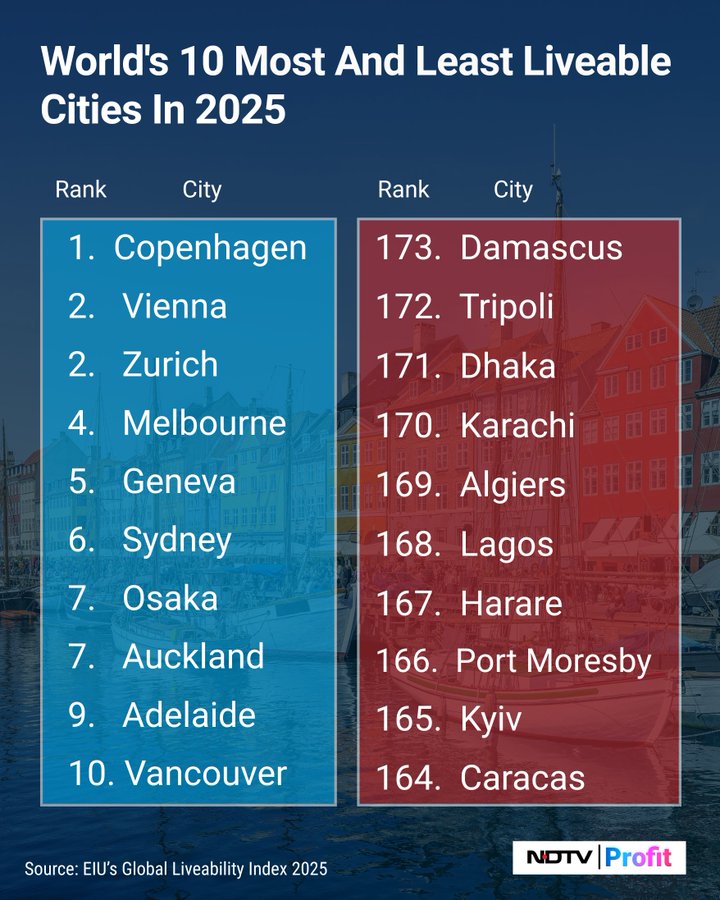Context:
The Economist Intelligence Unit (EIU), a renowned think tank, has recently released the "Global Liveability Index 2025". In this index, 173 cities of the world have been ranked on the basis of healthcare, education, stability, infrastructure and environment. Copenhagen, the capital of Denmark, has topped the list this time, while Vienna and Zurich have been jointly ranked second. Melbourne and Geneva have secured fourth and fifth positions respectively.
Global Liveability Index 2025: Key Points
· This index shows which cities have the best or worst living conditions.
· The assessment methodology uses 30 indicators under 5 major categories — stability, healthcare, culture and environment, education and infrastructure.
· Each indicator was rated as "acceptable", "tolerable", "uncomfortable", "undesirable" or "unbearable" and then given a total score between 1 and 100.
Key Findings
· The global average liveability score in 2025 was 76.1, the same as last year.
· Education, healthcare and infrastructure saw improvements, while the global stability score declined by 0.2 points.
· Copenhagen has overtaken Vienna to take the top spot this time. Vienna's sustainability ranking declined, with the fear of terrorist attacks being the main reason behind this.
· Cities in Western Europe once again dominated the liveability rankings, while the Asia-Pacific region and Vancouver (Canada) also found a place in the top 10.
· In contrast, several cities in the Middle East and Africa were ranked as the least liveable, although slight improvements were recorded in health and education in these regions.
· Syria's capital Damascus continued to rank at the bottom as the world's least liveable city, scoring only 30.7 points. Tripoli, Dhaka and Karachi also ranked low.
· Countries such as Iran (Tehran), Taiwan and India also saw a decline in stability scores, indicating growing conflicts and tensions.
Importance of Livability Index
Urbanisation and urban migration have witnessed a rise in recent years as people are being attracted to cities in search of better lifestyle, economic opportunities and basic amenities. In this context, the concept of a "liveable city" has emerged, where environmentally friendly, inclusive and structured facilities are available for living.
What is Urbanisation?
Urbanisation is the process in which a country or society moves from a rural to an urban lifestyle. It includes the migration of population to cities, physical and structural expansion of cities, and social and cultural changes.
Conclusion:
The Global Liveability Index 2025 not only measures the quality of life in cities, but it also highlights global urban policies, security challenges, and the state of public services. The report serves as a guideline for policymakers, urban planners, and citizens to make cities more inclusive, sustainable, and livable.







